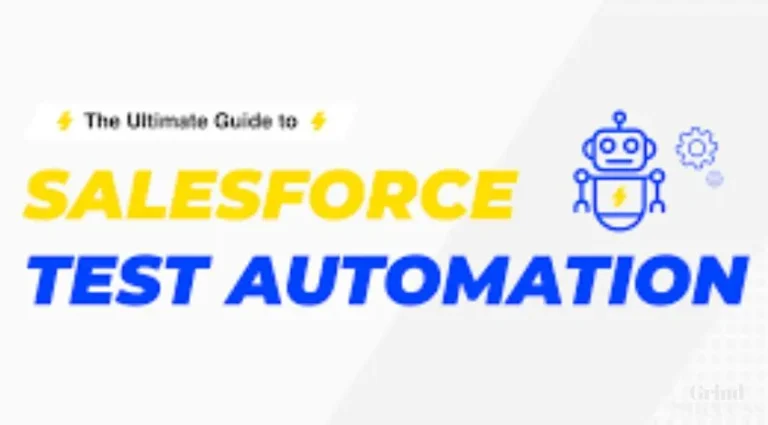Tips to Increase The Web Scraping Capabilities

Web scraping has become an essential business tool. If you are a web scraping enthusiast, you may be familiar with the challenges of crawling and extracting data from websites.
Improving the efficiency of the web scraping process can enhance web scraping capabilities. This article will discuss tips to increase web scraping capabilities and help businesses extract valuable data efficiently.
Introduction to Web Scraping Capabilities
Web scraping is an automated process that extracts data from the web. It uses a computer program to traverse the internet, looking for and extracting the desired information. Businesses use this technique to collect website data, including product prices, sales figures, customer reviews, etc.
Web scraping can quickly gather large amounts of data, which would take a long time or might not even be available.
By using web scraping techniques, businesses can gain valuable insights into consumer behavior and trends in their industry. With the right approach and tools, any business can benefit from web scraping capabilities to improve its bottom line.
Understanding the Limitations of Web Scraping
Web scraping has its limitations, and it is essential to understand them. Websites may have measures in place to prevent web scraping. Some websites may block IP addresses that they suspect are scraping their data.
Other websites may have steps to detect and avoid web scraping activities. It is also essential to understand that web scraping may sometimes be illegal.
Best Practices for Web Scraping
To enhance web scraping capabilities, it is important to follow the best practices:
Tips to Improve Web Scraping Capabilities
There are several tips that can be implemented to improve web scraping capabilities, such as downloading images with NodeJS, and much more. The following section will explore ways to extend your web scraping capabilities.
1. Plan Before you Scrape
It’s essential to have a plan before you scrape a website. With a plan, it’ll be easier to determine what type of data is available or how it should be structured.
You should know how to store the data, what tools and techniques you will use to extract it, and the resources needed to process it accurately.
Planning also saves time and effort, as well as minimizes errors. Additionally, having a clear goal can help avoid long-term maintenance issues, such as unexpected changes in the source data and mitigate security risks, such as IP blocking by the target server.
2. Humanize your Actions
To identify whether a website visitor is a bot or human, observe their behavior; bots move quickly and don’t interact unless instructed, making them easy to detect and block.
To avoid detection, teach the bot to act like a human by adding random intervals of inaction, navigating in a tree-like pattern, and clicking on random things.
Mimicking human behavior is crucial since websites can monitor and log activity, but if the website can’t keep track of the bot, read on for more information.
3. Use Proxies
Web scraping can put a significant load on a website’s server, which can result in the website blocking your IP address. To prevent this from happening, you can use proxies. Proxies allow you to route your web scraping requests through different IP addresses, making it more difficult for websites to detect and block your IP address.
4. Use User Agents
When you send web scraping requests to a website, the website can identify the type of browser and operating system you are using. This information is known as the User Agent. Some websites may block specific User Agents, which can result in your web scraping requests being denied.
To prevent this from happening, you can use User Agents that mimic popular web browsers like Chrome or Firefox. This action can block your IP address.
Ping can put a significant load on a website’s server, which can block your IP address. To avoid this, you should limit the requests you send to a website. You can do this by adding a delay between your requests or restricting the number of requests you send per minute.
5. Use Captcha Solvers
Some websites may use Captchas to prevent web scraping. Captchas are designed to be difficult for automated systems to solve, but services are available that can solve Captchas for you. These services can help you bypass Captchas and continue web scraping without interruption.
6. Use Scraping Software
Scraping software can help you automate the web scraping process and make it more efficient. Many scraping tools are available, and some can even help you schedule your scraping tasks, so they run automatically.
7. Use Structured Data
Structured data is a standardized format for providing information about a webpage and classifying the page content. By using structured data, you can make it easier for web scraping tools to extract data from your website. You can use tools like Schema.org to add structured data to your website.
8. Monitor Your Scraping
It’s essential to monitor your web scraping activities to ensure that they are running correctly and not causing any issues for the website you are scraping. You can use tools like ScrapingBee to monitor your web scraping activities and receive alerts if any problems arise.
Web Scraping Tools and Software
Several web scraping tools are available, each with unique features and functionalities. Some popular web scraping tools include:
1. BeautifulSoup
BeautifulSoup is a popular Python library used for web scraping. It allows you to parse HTML and XML documents, navigate the parse tree, and extract data from them. BeautifulSoup is easy to use and has a vast community of developers contributing to its development.
2. Scrapy
Scrapy is an open-source web crawling framework written in Python. It is used to extract structured data from websites, and it can also be used to extract data from APIs. Scrapy is scalable and can scrape large amounts of data quickly.
3. Selenium
Selenium is a browser automation tool used for web scraping. It allows you to automate browser actions like clicking buttons and filling out forms. Selenium is helpful when scraping dynamic websites that load data through JavaScript.
4. Octoparse
Octoparse is a visual web scraping tool allowing you to scrape websites without coding knowledge. It has a user-friendly interface and can extract data from tables, lists, and other structured data.
How to Use Web Scraping Tools Effectively
Web scraping can be a powerful tool but can also be abused. It is essential to use web scraping tools ethically and legally. Here are some tips to help you use web scraping tools effectively:
1. Respect the Website’s Terms of Service
Before scraping a website, please read and understand its terms of service. Some websites prohibit web scraping, while others allow it under certain conditions.
2. Do not Overload the Website’s Servers
Web scraping can be resource-intensive and can overload a website’s servers. Make sure to set up your scraping tool to be respectful of the website’s resources.
3. Check the Data Quality
Web scraping can sometimes result in incomplete or inaccurate data. It is essential to check the data quality regularly to ensure that it is accurate and up-to-date.
4. Be Mindful of Legal Restrictions.
Web scraping can sometimes violate copyright, trademark, or other legal restrictions. Make sure to understand the legal rules before scraping a website.
Importance of Enhancing Web Scraping Capabilities
Enhancing web scraping capabilities is essential for businesses that rely on data-driven decisions. Efficient web scraping capabilities can help companies make informed decisions based on website data.
The ability to collect data faster and more accurately can give businesses a competitive edge. Enhanced web scraping capabilities can also help researchers gather data more efficiently, leading to more accurate research findings.
Future of Web Scraping Capabilities
The future of web scraping capabilities looks bright. As technology continues to advance, web scraping capabilities will continue to improve.
Machine learning algorithms will be used to improve the accuracy of the data collected. Web scraping tools and software will become more advanced and efficient.
The use of web scraping will become more widespread as businesses and researchers continue to rely on data-driven decisions.
Conclusion
Web scraping can be a powerful business tool but requires careful planning and execution. These tips can increase your web scraping capabilities and extract valuable data efficiently.
Remember to use proxies, User Agents, and Captcha solvers to avoid being blocked by websites. Additionally, structured data and scraping software can help you automate the process and make it more efficient.
Lastly, monitor your scraping activities to ensure they are running correctly and not causing any issues for the website you are scraping.






